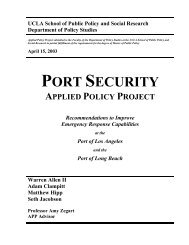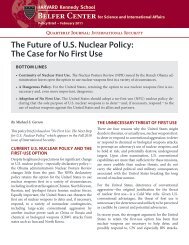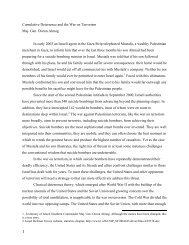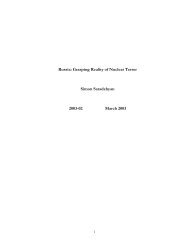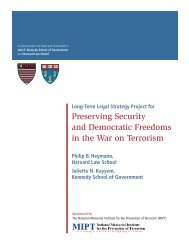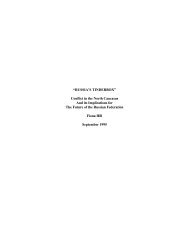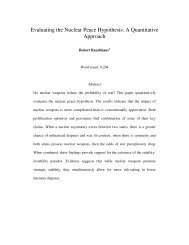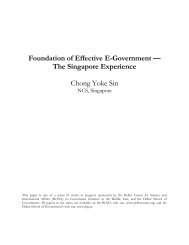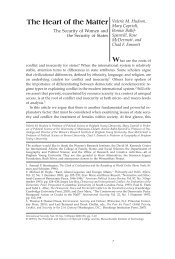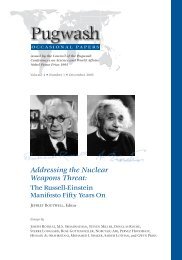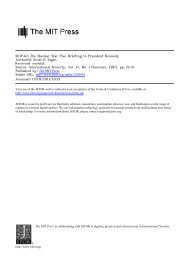Disrupting Escalation Of Terror In Russia To Prevent - Belfer Center ...
Disrupting Escalation Of Terror In Russia To Prevent - Belfer Center ...
Disrupting Escalation Of Terror In Russia To Prevent - Belfer Center ...
You also want an ePaper? Increase the reach of your titles
YUMPU automatically turns print PDFs into web optimized ePapers that Google loves.
FSB to declare a state of emergency in an area threatened by “terrorist danger” for up to sixty<br />
days based on information—even if unverified—about preparations for a terrorist attack. 79<br />
Law enforcement officials in the North Caucasus have extensively relied on the existing<br />
laws in their efforts to fight terrorism, but they have also abused the powers given to them by<br />
cracking down on dissent that has little to do with terrorism, as demonstrated below in the case<br />
study of Dagestan. <strong>In</strong> Chechnya, law enforcement agencies have gone greatly exceeded their<br />
authority in conducting extrajudicial executions during the shift away from large-scale<br />
operations to seek-and-destroy patrols. 80<br />
During the researched period, <strong>Russia</strong>n authorities also gave the law enforcement and<br />
defense agencies a silent nod on assassinations of suspected insurgency terrorist leaders both in<br />
<strong>Russia</strong> and abroad. Additionally, while the Federal Security Service did not hesitate to assume<br />
responsibility for killing warlord Khattab in Chechnya after he died of poisoning in April 2000,<br />
no <strong>Russia</strong>n agency would admit to having killed the vice president of Chechnya’s self-<br />
proclaimed separatist government, Zelimkhan Yandarbiyev, in Qatar in February 2004. While<br />
refusing to assume responsibility, <strong>Russia</strong>n authorities demanded and succeeded in obtaining the<br />
transfer of two <strong>Russia</strong>n agents convicted of the assassination back to <strong>Russia</strong> under the order of a<br />
Qatar court.<br />
79 If passed into law, the bill will grant the security services the right to monitor private communications, ban<br />
demonstrations and prevent the movement of people and vehicles in zones where a terrorist alert is declared. Under<br />
the bill, the power to declare a state of emergency would reside with the head of the counterterrorism operations<br />
headquarters, a ranking FSB officer appointed by the prime minister.<br />
Under the existing law, a state of emergency can be called for the duration of a counterterrorism operation.<br />
The bill does not specify how often a state of terrorist danger can be declared. The bill also sets out legal procedures<br />
allowing the military to participate in counterterrorism operations—including, for the first time, those beyond<br />
<strong>Russia</strong>’s borders—under the overall direction of the FSB, the country’s lead counterterrorism agency. The bill<br />
would oblige journalists to cover terrorist attacks only within limits set by the FSB’s counterterrorism operations<br />
headquarters. It was not clear from the bill whether all media outlets covering a terrorist attack, including those not<br />
reporting from the scene, would need to obtain FSB permission, or whether the headquarters would have the<br />
authority to block media coverage.<br />
37




